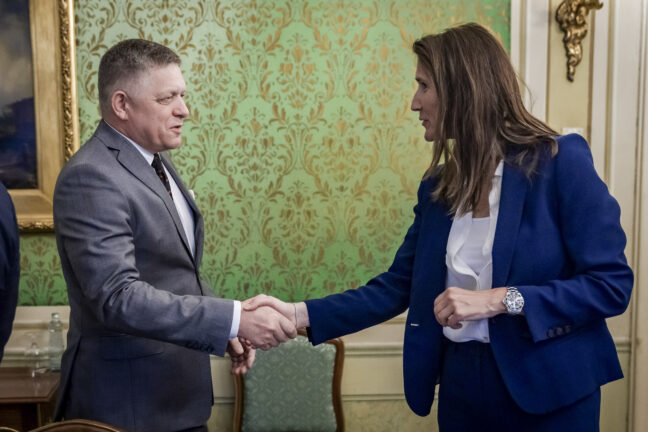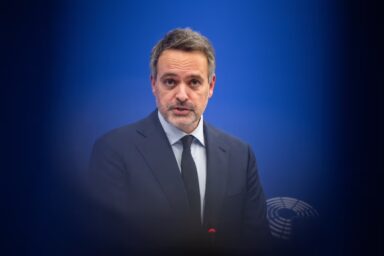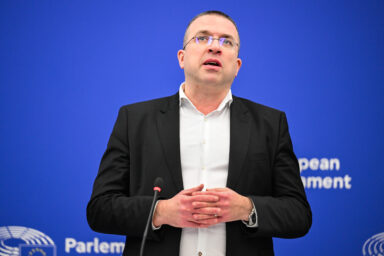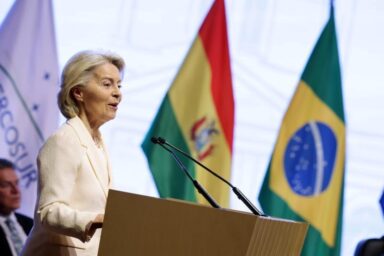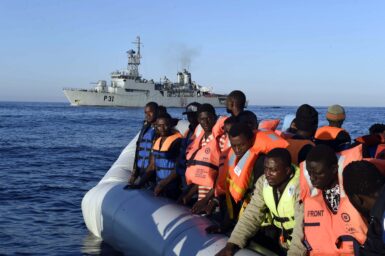Slovak PM Robert Fico said on Tuesday he would block the latest EU sanctions package against Russia if it should harm his country. He may be just trying to extract concessions form Brussels—but it is an act of Orbán-style brinkmanship that may yet backfire.
Slovakia has raised the threat of throwing a wrench into the European Union’s efforts to adopt an 18th package of sanctions against Russia over the country’s aggression against Ukraine. Prime Minister Robert Fico declared his government will withhold support unless Brussels offers “real solutions” to the energy crisis triggered by cutting off Russian gas, oil, and nuclear fuel. The threat, aired on Mr Fico’s Facebook page hours after Slovakia’s parliament passed a non-binding resolution opposing new sanctions, underscores the fragility of EU unanimity as the bloc grapples with its most geopolitically divisive issue.
The sticking points
The proposed sanctions, unveiled by the European Commission on Tuesday, aim to tighten existing measures by lowering the price cap on Russian oil to $45 per barrel and banning transactions with entities linked to the Nord Stream gas pipelines or banks aiding the evasion of sanctions. Their adoption requires unanimous approval from all 27 member states—a threshold now in doubt.
Slovakia’s parliament, dominated by Mr Fico’s left-wing Smer party and its coalition allies, voted last week to instruct the government to cease backing new anti-Russia measures. While non-binding, the resolution signals a hardening stance: 51 of 150 lawmakers, including most of Smer’s caucus and members of the nationalist SNS, endorsed the motion. Critics, such as former foreign minister Miroslav Wlachovský, accuse the government of acting “exclusively in the interests of Vladimir Putin’s regime”.
Energy angst, diplomatic wrangling
Mr Fico’s objections hinge on energy security. Slovakia, which until 2022 relied on Russia for 85% of its gas and all its nuclear fuel, argues that severing remaining ties—including exemptions for pipeline gas and nuclear supplies—would cripple its economy. “Sanctions damage Slovak national interests,” he asserted, vowing to demand “strong peace messages” at the EU leaders’ summit later this month. Yet his rhetoric obscures a delicate balancing act: though critical of sanctions, Mr Fico’s government has approved all 17 previous packages.
Mr Fico’s stance remains deliberately opaque. After informing European Council President Antonio Costa of the parliament’s resolution, he declined to specify whether Slovakia would veto the sanctions package or abstain—a distinction with procedural consequences. Under EU rules, abstentions do not block unanimity, but a formal “no” would derail the entire proposal.
You might be interested
Constitutional quandaries
Legal experts downplay the immediate impact of parliament’s resolution. “It carries no legislative force—it’s a political statement,” Slovak constitutional lawyer Vincent Bujňák explained to the local Pravda server. The motion also failed to meet procedural requirements for EU-related votes, which demand signatures from at least 30 MPs (one-fifth of the legislature). Only four Smer lawmakers sponsored the text, rendering it symbolic.
Yet symbolism carries weight in Brussels. Slovakia’s defiance aligns it closer to Hungary, which has routinely held EU sanctions hostage to extract concessions. Both nations now threaten to upend the renewal of existing measures, including SWIFT bans on Russian banks and restrictions on pro-Kremlin media, which expire in July. “Our partners will see us as having limited sovereignty, with part of our coalition controlled by Putin,” warns Mr Wlachovský.
Broader implications
The standoff highlights the EU’s growing pains as it navigates a prolonged conflict. While the bloc has maintained remarkable cohesion since 2022, cracks are emerging. Hungary’s Viktor Orbán has long been a spoiler; Slovakia’s shift—driven by Mr Fico’s pro-Russia rhetoric since returning to power in 2023—adds a new friction point.
We’re playing with fire—and everyone knows it. A Slovak diplomat
The Commission’s response remains uncertain. Offering Slovakia energy guarantees could set a precedent for other reticent states, yet ignoring its concerns risks emboldening Moscow. Meanwhile, the clock ticks: EU leaders meet in late June to discuss the package, with a final vote due by July.
A test of resolve
For now, Mr Fico walks a tightrope. Domestically, he must placate coalition partners and an electorate weary of inflation. In Brussels, he faces pressure to uphold European solidarity. His ambiguous stance—criticising sanctions while stopping short of outright veto threats—suggests a desire for political theatre without triggering a crisis.
But the stakes are high. Another Hungarian-style blockade would undermine the EU’s credibility and hand Putin a propaganda win. As one Slovak diplomat privately conceded, as quoted by local press: “We’re playing with fire—and everyone knows it.”
The coming weeks will reveal whether Slovakia’s gambit is a negotiating ploy or a pivot toward the Kremlin’s orbit. Either way, the episode underscores a sobering reality: sustaining unity in the face of prolonged conflict may prove as challenging as forging it in the first place.
